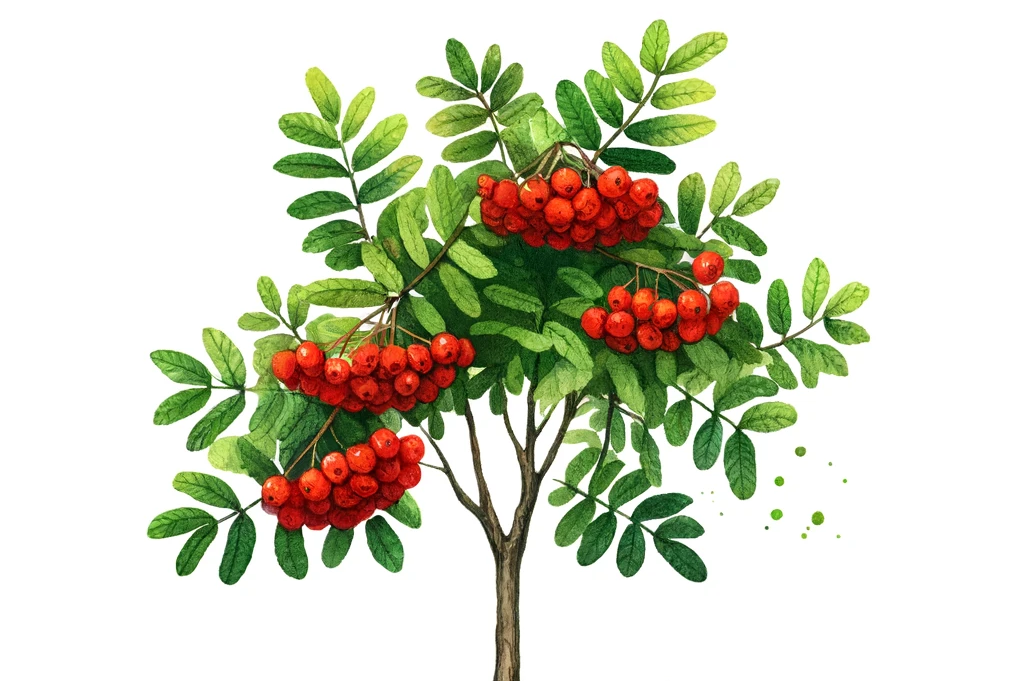Honeysuckle

Honeysuckles, with their dense foliage and bright berries, are an ornamental feature in many gardens and natural landscapes. But while they can be a delight to the human eye, the important question for dog owners is: are honeysuckles safe for our four-legged friends? In this article, we examine the nature of honeysuckles, discuss their potential benefits and drawbacks for dogs, and draw a final conclusion about their suitability in a dog-friendly environment.
What are honeysuckles?
Honeysuckles belong to the genus Lonicera and include a variety of species, both as shrubs and as climbers. They are particularly known for their fragrant flowers and the bright red, orange or black berries that follow. While some species of honeysuckle are prized for their edible berries, other species contain substances that can be toxic to humans and animals.
Potential benefits of honeysuckle
Aesthetic enrichment
Honeysuckles can beautify gardens and outdoor areas, which can indirectly help to increase the well-being of dogs by creating a stimulating and visually appealing environment.
Habitat and food for wildlife
Some honeysuckle species provide food and shelter for wildlife, including birds and insects, which helps maintain a healthy ecosystem that can also be beneficial for dogs.
Possible disadvantages and risks for dogs
Toxicity
Some species of honeysuckle contain saponins, a substance that can cause symptoms of poisoning in dogs and other pets. Symptoms of poisoning can include vomiting, diarrhea, abdominal pain and in severe cases even lethargy and coma.
Risk of injury
The dense branches and hard wood of honeysuckle bushes can pose a risk of injury, especially to playing or curious dogs running or trying to squeeze through the bushes.
Attracting pests
Honeysuckle bushes can attract certain pests that can also be annoying or harmful to dogs, such as ticks that can transmit diseases.
Although honeysuckles can be an asset to the garden and local wildlife, caution should be exercised in their presence around dogs. The potential toxicity of some species poses a serious risk to dogs' health that should not be underestimated. Dog owners who have honeysuckles in their garden or are considering planting them should inform themselves about the specific species and ensure that toxic varieties are not selected. It is also advisable to keep dogs away from honeysuckles and monitor them regularly for signs of poisoning.
If in doubt or if poisoning is suspected, a vet should be consulted immediately. Ultimately, careful selection of plant species and vigilant monitoring of dog/garden interactions can help to create a safe and enjoyable environment for all residents.
If you notice any signs of hypersensitivity or poisoning in your dog, you should see your vet immediately. We are not a substitute for a vet, but we try to be as accurate as possible. Every dog reacts differently and we recommend you get a second opinion or consult your vet if in doubt.
Stay healthy and take good care of your four-legged friend!😊
Similar to Honeysuckle
Blackthorn (Prunus spinosa) is a plant species from the rose family (Rosaceae). It is characterized by its robust nature, can grow up to three metres tall and is particularly eye-catching during...
The rowan tree (Sorbus aucuparia) belongs to the rose family and to the genus of rowanberries. It is widespread throughout Europe and large parts of Asia and is very adaptable to different locations...
Currants are the only genus in the gooseberry family. There are different types of currants, which differ in color, taste and nutritional content. The best known are the red, white and black...
Rosehips are the seed capsules of wild roses that ripen after flowering in the fall. They contain many small, hard seeds surrounded by soft, juicy flesh. Rosehips are rich in vitamin C, which...



